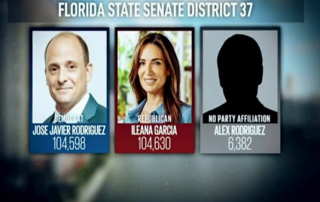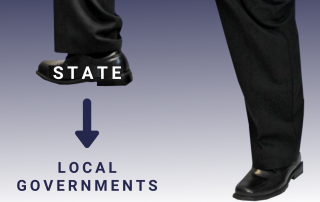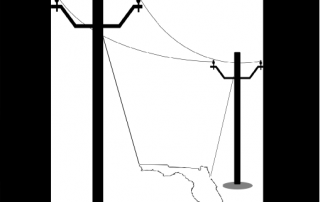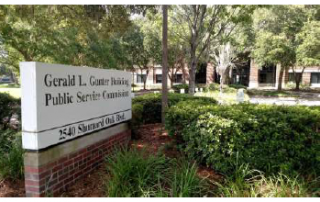Money and Political Influence
Political Contributions
Under section 106.011 Florida Statutes, “Contribution” is defined as:
A gift, subscription, conveyance, deposit, loan, payment, or distribution of money or anything of value, including contributions in kind having an attributable monetary value in any form, made for the purpose of influencing the results of an election or making an electioneering communication.
Lobby Expenditure
Under section 112.3215 Florida Statutes, Lobby “Expenditure” is defined as:
A payment, distribution, loan, advance, reimbursement, deposit, or anything of value made by a lobbyist or principal for the purpose of lobbying.
Money Political Influence in Florida.
What are campaign contribution limits in Florida?
City or County
Campaign contributions that go directly to a candidate’s account are limited to $1,000 for legislative and local races.
Statewide
Campaign contributions that go directly to a candidate’s account are limited to $3,000 for statewide races (Governor and Cabinet).
In reality, those contribution limits are a regulatory illusion.
Why are Florida Campaign Finance Regulations an Illusion?
Candidates can set up “Political Committees” (PC’s) that are allowed to raise and spend unlimited amounts of money with no restrictions on coordination with a candidate’s campaign. The use of PC’s also makes campaign funding less transparent, making it difficult to track the source of a contribution. Florida should move to restore the intent of the original campaign finance reform which sought to answer the fundamental question “who gave it, who got it?”
What Florida needs is comprehensive campaign finance and lobby reform.
A constitutional amendment, passed overwhelmingly by voters in 2018, created a revolving door ban that prohibits public officials from lobbying for six years after they leave office. It was a good first step, but Florida must tighten its lobbyist compensation reporting requirements.
Compensation for lobbying is currently reported in a $10,000 range, for example 1$ to $9,999 or $10,000 to $19,999. Reporting the exact amount of compensation would better allow the public to understand how lobbyists are used to influence public policy.
Research Publications
“Ghost Candidates” How They Manipulate (and sometimes steal) Florida Elections
Download the full PDF report here
December 2022
Executive Summary
The term “ghost candidate” was first used in Florida press reports to describe a political dirty trick
that took place in three state Senate races during the 2020 election cycle. In the Senate races for
Districts 9, 37 and 39, No Party Affiliated candidates were essentially bribed to enter the races in
a scheme to siphon votes away from Democratic candidates in favor of their Republican
opponents.
Leaked documents from an Alabama-based political consulting firm with ties to Florida’s largest
utility Florida Power and Light show how “dark money” political committees worked behind the
scenes to promote the ghost […]
Preemption Strategy 2.0 The Continuing Attack on Home Rule in Florida
February 2021
In many states, including Florida, legislatures increasingly are passing bills that preempt local power granted to city and county government. State governments dominated by Republicans, the American Legislative Exchange Council and business interests combine to pass legislation to explicitly block local action on an array of issues. Preemption moves government action away from the entity closest to the people. It can be used to block local ordinances that reflect a community’s will to help women, people of color, LGBTQ people and those in poverty. Since March 2020, when COVID-19 forced the implementation of mitigation […]
Preemption Strategy
January 2020
Executive Summary
For several years a revolution has been underway in the relationship between states and their local governments. In many states, including Florida, legislative majorities, particularly Republicans, are passing legislation that weakens the home rule powers of cities and counties.
The states’ mechanism is preemption, the legal doctrine that empowers states to override local governments when they differ. Preemption has evolved from a practice that involved narrow issues of regulation and was designed to align state and local laws to make sure there were no inconsistencies. Now new, more aggressive types of preemption practiced by […]
The Hidden Cost of Charter School Choice
Download the full PDF report here
September 2018
Executive Summary
Underfunding, coupled with the continual adoption of tax cuts that make adequate public-school
spending harder and harder to attain, prompts a look into the future. How much further growth in
the number of charter schools is likely? How will that growth affect traditional schools and the
public education system?
The answer to the first question appears to be that growth will continue unabated as long as private
charter companies consider public schools a profit-making opportunity and they find receptive
audiences in the legislature. If current trends continue, a 2015 national report concluded, “Charter
schools will educate 20-40 percent of […]
Power Play 2018: Political Influence of Florida’s Top Energy Corporations
May 2018
Executive Summary
In 2014, Integrity Florida released a report titled Power Play: Political Influence of Florida’s
Top Energy Corporations. The report examined the political influence of the state’s four largest
electric utility companies: Florida Power & Light (FPL), Duke Energy (formerly Progress
Energy), TECO Energy and Gulf Power. Among other issues, the report analyzed the campaign
spending of these four regulated utility monopolies over five election cycles beginning in 2002
through 2012. The report also looked at yearly lobbying expenditures by the companies from
2007 through 2013.
The report cited a March 2013 article by the Miami Herald that concluded the Florida
Legislature […]
Florida’s “Public Service” Commission? A Captured Regulatory Agency
Download the full PDF report here
October 2017
Executive Summary
For most of its 130-year history, the agency now known as the Florida Public Service
Commission was a three-person body, elected in statewide elections. In 1978, with the intent of taking politics out of the Commission’s utility rate decisions, the legislature made the PSC a five-member appointed commission.
Since that change was made nearly 40 years ago, the Governor and the Florida Legislature have exercised considerable influence on the PSC through the nomination and appointment process.
The utilities regulated by the PSC have a high degree of influence on the Governor and the legislature through […]







